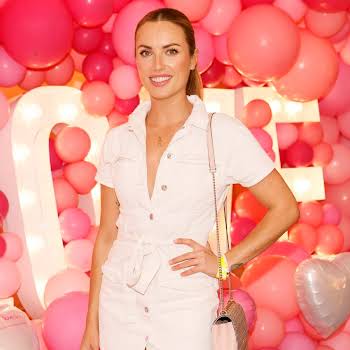
Reality Bites: TV shows like Love Island are warping our minds
It may be the most unifying show on television, but shows like Love Island are promoting some pretty damaging messages. Self-confessed, reality TV addict, Amanda Cassidy discovers a darker side to our current obsession.
It’s my guilty pleasure. In fact, I would probably fight you if you wanted to look at my Sky Box Planner. From ‘Real’ Housewives of wherever to the Kardashians, Geordie Shore and Love Island, my dirty secret is there in all its degrading glory, lists of series-linked drivel that I just can’t get enough of.
To put it into context, I’ve been watching Teen Mom since the very first series. The ‘babies’ are now 9 years old. I’ve always laughed about my hankering for humanity – sure, it’s all just a bit of fun, right?
Trashy escapism?
Well, perhaps the rise of reality TV is more damaging than we think. A major study on the behavioural science of Reality TV at Syracuse University found that when it comes to shows like this, some people take it very seriously.
In fact, the research found that people are a lot more easily influenced by reality television because they eventually copy the behaviour portrayed on the screen and use them in real life. Now, I’m not saying I’m going to start wearing my bikini down to do the food shop in Tesco (Jesus wept) but there are more impressionable people in society and some shows can have a detrimental impact on their perceptions of the world.
The study carried out a series of surveys and concluded that those who view reality TV regularly believe that the argumentative and conniving behaviours shown on TV are considered normal in today’s society.
Playing God
What makes reality TV shows so addictive is also about what happens on the show. Many like The X-factor or Love Island give power to the people. Producers alter scenes to showcase conflicts between cast members.
The storylines are entertaining, relatable, and mostly interactive with the audience. The scripts, (yes, scripts) allow the audience to choose who is likable and who is not – this puts a lot of power and control into the hands of the lay-viewer and who doesn’t like a bit of power – especially when you can affect an outcome on the (gasp) telly while sitting on the couch eating Pringles of a Friday night.
But so what if it is bad for us? So are Pringles, after all. We are no longer ashamed to admit we enjoy a bit of brain fluff after a day of hard work – what harm when we are responsible adults?
But the issue is how nuanced and aggressive the messages have become as producers hunger for ever-more-edgy entertainment.
Life ‘Unscripted’
The number of mutations of the reality theme is truly astonishing – first, we had MTV’s, Real World which allowed us a glimpse into the lives, strains, and relationships of a group of young people. The success of this show surprised everyone.
Shows like Big Brother and Survivor followed suit but now there are cup-cake baking shows, cheating on your spouse shows and even a reality show about marrying a stranger – (watched it, loved it). It is fair to say that media moguls will put almost anything on TV to attract an audience. It is cheap and dirty and it has exploded in popularity.
The magic formula is there – it is provocative, voyeuristic, manipulative, aspirational and a little bit gross. It is salacious and we are. hooked. Watching others being selfish or bitchy offers viewers a type of validation of their own choices.
The men and women on Love Island are looked up and down in their skimpy swimmers and either discarded or chosen based on their looks. A reflection of our biology maybe, but couldn’t they at least grab a drink together first?
Sociology
And then there are the not-so-nuanced messages like the binge-drinking, badly lit sex, wardrobe romping, cheating, and vulgarity when it comes to shows like Love Island, Geordie Shore and Ex on the Beach.
It is eye-opening and fascinating, but is it dangerous to normalise this kind of behaviour? And when did we get so enthralled by duvet-porn?
The real issue is that reality TV is a symptom of a far more serious problem. Society’s gradual dumbing down and surrendering to the basest side of human nature – watching people hook up, watching people stab each other in the back, rewarding gossip, winning the guy or girl, destruction, transformation and sex in small spaces.
Call it what you like – call it social experimentation, pretend it is only about the clothes or the relationships, but we can’t deny our fascination with the butt-jiggling, the boob bouncing, the fabulous figures, the muscles, the chase and the catch.
We are social creatures that compare ourselves to other people’s lives. We aspire to be as attractive (Love Island) as rich (The Bachelor) and as talented (The X-factor). It is all up there for us to see, and lucky us, because they really do let it all hang out.
Reality TV has shown us that the tiniest details of a person’s day-to-day life is valuable to others. That’s why YouTube stars share their entire relationships, lives, and loves. All they need is a webcam.
We watch clips on Instagram Stories of random strangers chatting away to us in our living room as they walk along in their fancy shoes or as they draw heart eyes around their coffee cups.
Maybe it is all just about connecting and being drawn to the reflection of our own lives in others, but as we continue to obsess over the ordinary, those in the ‘factual entertainment’ sphere will continue to profit considerably.
Reality TV is unstoppable. Kimmy for President?
























